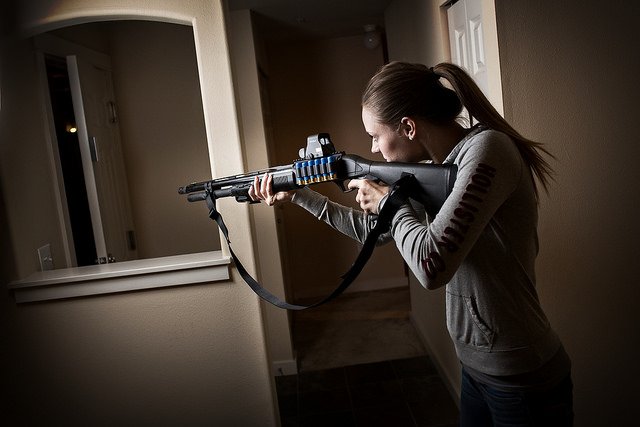Am I Allowed to Own a Gun?
Texas is known for being a state that strongly supports 2nd Amendment constitutional rights. Millions of Texas citizens own at least one firearm, whether for hunting, personal defense or for recreational marksmanship. Despite the popularity of firearm ownership throughout the state, Texas has some very strict laws regarding who is allowed to own a gun. These laws make clear distinctions between who can legally own a gun and who is prohibited from owning or possessing a firearm.
This issue is made more complex by federal gun regulations. In some cases, federal laws are stricter than Texas laws concerning firearm ownership. In certain circumstances, federal law will be used in place of or in addition to state laws. Knowing more about this issue will help Texas citizens understand who can legally own or possess a gun.
Who Can Own A Gun in Texas?
This year has seen some major changes in Texas gun laws. Laws were recently passed that will allow for the open carry of firearms in public in 2016 and, in that same year, concealed carry of handguns on some college campuses will be allowed. The first restriction on gun ownership in Texas is the age of the owner. Currently, the laws state that:
- A person aged 18 or over with a valid ID can purchase and own a rifle or shotgun
- A person aged 21 or over with a valid ID can purchase and own a handgun
- A person aged 21 or over with the proper permit can carry a concealed handgun in many areas
Although age is an important issue for Texas gun owners, it is not the only restriction on gun ownership. For example, all of the above restrictions apply only to people who were never convicted of a felony crime. Also, concealed carry licenses cannot be issued to people who are fugitives, chemically dependent, unable to exercise sound judgment or people who owe back child support or taxes.
Who Is Prohibited From Owning Guns in Texas?
As mentioned in the previous paragraph, certain people are not allowed to own guns in Texas. In some cases, certain people are not even allowed to possess a gun or stay in a residence where guns are kept. Some of these people include:
- Convicted felons
- People who have been convicted of Class A misdemeanor domestic violence
- People who are subject to the terms of a domestic violence protective order
- People who use or are addicted to controlled substances
Anyone who falls under these categories may never be allowed to own a gun in Texas. This is usually due to federal laws which overrule Texas state laws. Interestingly, the laws prohibiting certain people from owning guns also apply to the ownership of ammunition. This means that a person who is prohibited from owning guns can face legal prosecution for owning or possessing bullets or cartridges.
Possession vs. Ownership
The laws regarding who is not allowed to own guns can also apply to people who possess guns. For example, in Texas, a person who can legally own guns is allowed to walk directly to their vehicle with an unconcealed weapon for the purposes of transport. A convicted felon who simply carries a friend’s hunting rifle to his friend’s vehicle could potentially face prosecution for possessing a firearm.
In some cases, a person who hasn’t even been convicted of a felony can be prosecuted for possessing a firearm in their car or on their person. In section 18 of the United States Code, a person who has been indicted for a crime for which the punishment could be more than one year in jail is not allowed to ship, receive or transport firearms or ammunition.
Can Felons Ever Own Guns?
In rare circumstances, a convicted felon may be able to have their gun ownership rights restored. These situations are uncommon but the law allows for them to occur. The United States Code states that a person who “has their civil rights restored” after a felony conviction may be able to own firearms. In Texas, there are only two ways for a convicted felon to have their gun ownership rights restored:
- A pardon from the governor
- An expungement
If a person receives a pardon from the governor for a felony conviction, their record is cleared and the federal government will defer to the state to restore that person’s rights. Also, if a person receives an order of expungement for a felony so that it is removed from their record, they may have their rights restored.
The federal and state laws regarding gun ownership can be confusing because they sometimes overlap or contradict one another. Consulting an attorney is the best way to find out if an individual is prohibited from owning guns in Texas.
Have questions about your right to own a gun? Contact the law office of Rand Mintzer today. Call (713) 862-8880 or email for a free, confidential consultation.

